Employee assistance programs (EAPs) have long been synonymous with employer-funded mental health counselling services. But today’s employees expect more than only mental health support. To perform at their best, many employees are looking to their employers and EAPs to provide ongoing, preventative care, and medical and safety benefits as well.
This is because existing healthcare systems are not working and not everyone has equal access to care. People are waiting longer for urgent healthcare appointments, being turned away when their case is too complex, delaying vital health care because of cost, and are increasingly subject to dangerous situations both at work and outside of work – which is affecting their ability to concentrate and perform at work.
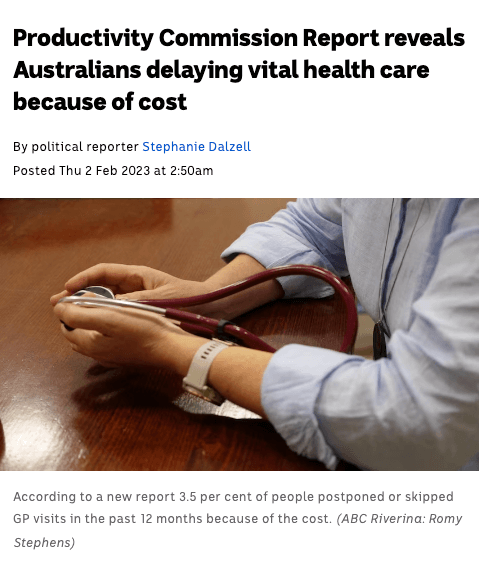
Some leaders argue it’s not their responsibility to offer anything beyond mental health counselling or provide support after work hours (despite that this is when people need support the most).
But, given that comprehensive wellbeing support has been shown to increase the financial benefits an employee returns to an organisation, wouldn’t it make sense to provide the type of support people need, when they need it, so they can get well, stay well, and perform their best at work?
After all, when employees are not well, their poor wellbeing presents in the workplace as absenteeism, presenteeism, emotional contagion, workers’ compensation claims, and/or resignation.
Each of these can prove costly (e.g. absenteeism costs the Australian economy $35+ billion annually in wages and lost productivity, presenteeism costs $34 billion, and the workers’ compensation paid for work-related mental health conditions was last reported at $904.9 million), and a risk to long-term organisational resilience.

What did 10,000+ cases teach us about wellbeing support?
Disclaimer: Sonder is an EAP alternative. We provide safety and medical support in addition to mental health support.
In our sample of 10,000+ active member cases at Sonder, we found that more people reached out to us for medical support than for either mental health counselling or safety support.
We also found that almost 72 per cent of members presented with more than one wellbeing issue, and nearly one in five people had five or more presenting conditions.
This meant that most people who reached out for support were contending with multiple, intertwined challenges, with the impact compounded for each challenge.
This illustrates that wellbeing is unique and complex – and cannot usually be solved with mental health counselling alone.
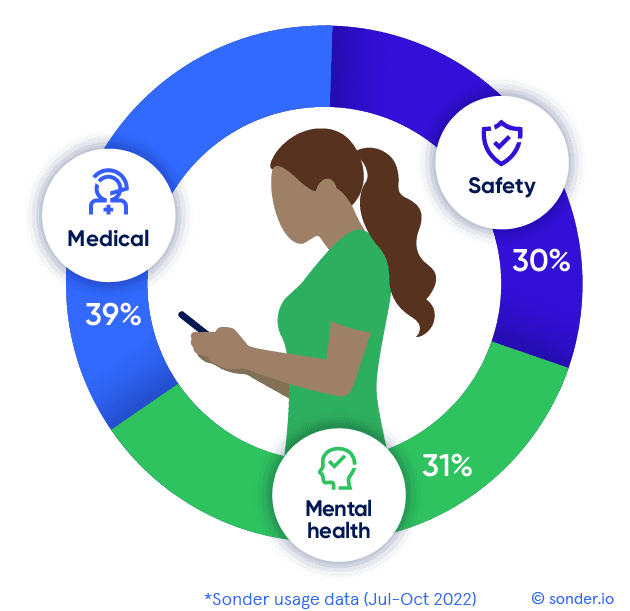
What employee benefits do employees want?
When we surveyed 2,000 workers in Australia and 1,500 workers in the UK, we found that employees expect their employers to share responsibility for their wellbeing. Interestingly, they expect not only mental health support but safety and medical support as well.
We saw this also in our latest safety trends report, where a rise in the use of our in-app safety features showed that people are feeling cautious and wanting support not only at work but after business hours too.

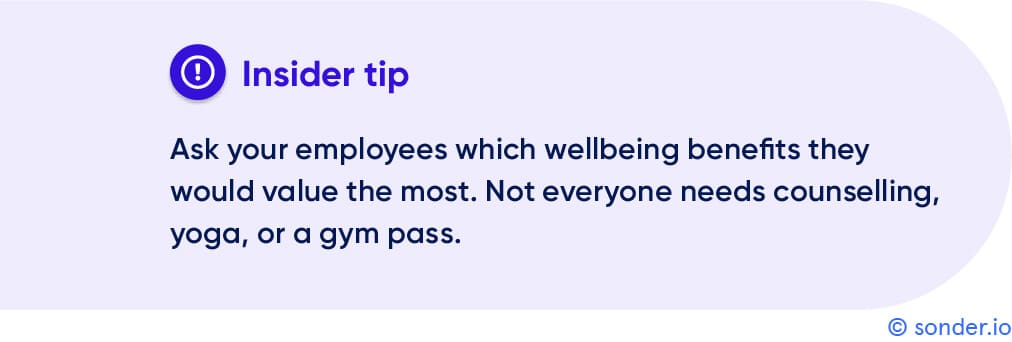
Scope of care: checklist for EAP services
To help you compare EAP services (and EAP alternatives), we’ve put together a suggested checklist of questions to ask vendors about their scope of care. This should be the first and most important focus for your initial discussions because if the vendor only offers mental health counselling and doesn’t offer a broad enough scope of care to match the needs of your people, you’ll end up either with employees whose needs are not being met or who have to navigate a complex web of different providers every time they need support.
Key suggested scope of care areas to ask about include mental health support, medical support, safety support, managerial support, and referral pathways.
Note: If your EAP provides referral pathways, can they give warm handovers to enable a smoother transition of care for your people? For example, instead of just telling someone to go to their local hospital, can your EAP’s nurses call the emergency department supervisor at the hospital and explain the situation (and share their initial triage), so the person who is unwell and/or in distress does not need to tell their story all over again upon arrival – which may help them receive care faster.
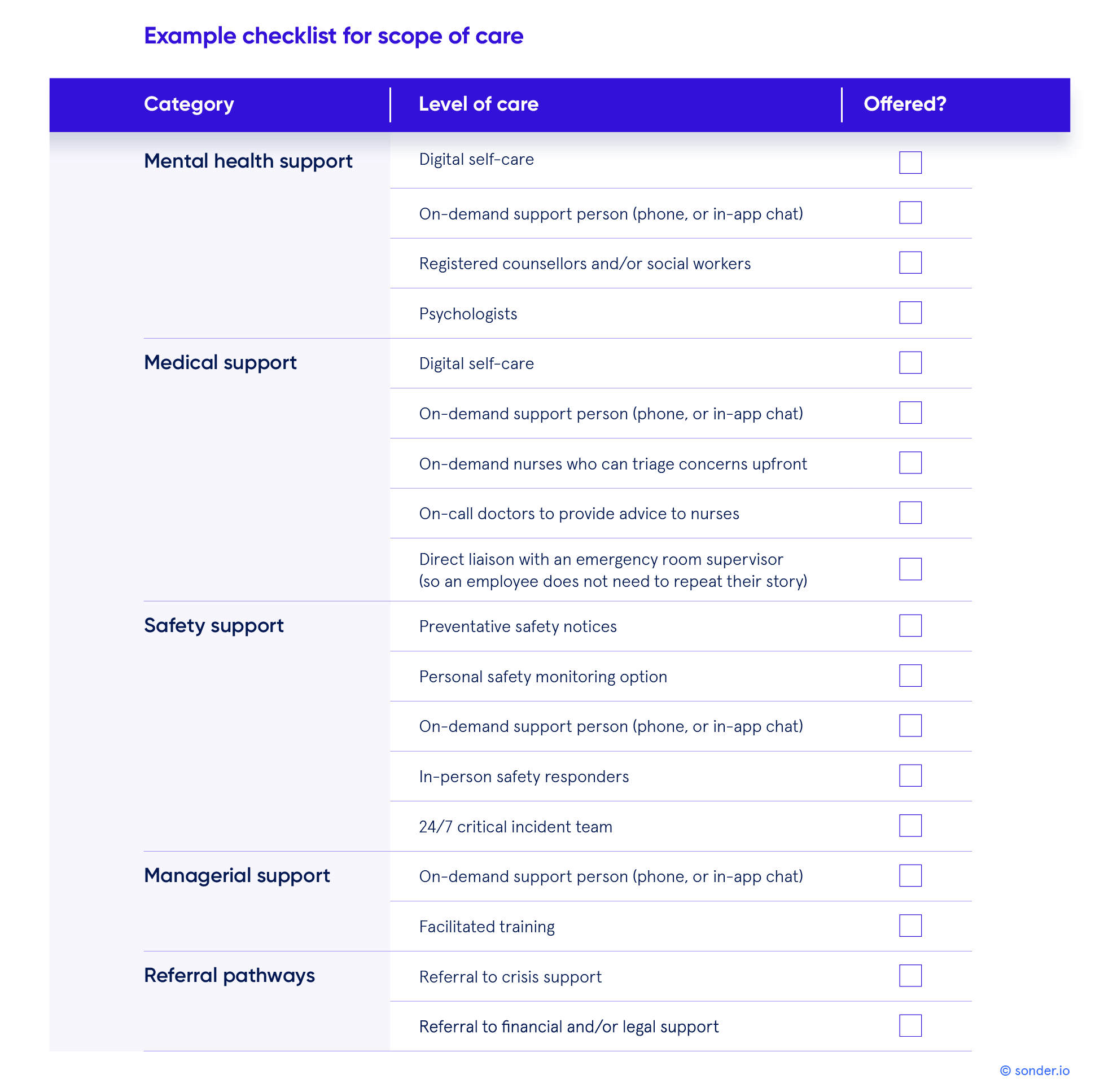
Audit your existing EAP service
When you are comparing EAPs (or modern EAP alternatives), your first step will be to audit your existing wellbeing support offering.
Ask your employees what wellbeing support they need the most, then research best-practice wellbeing support options for comparison. For example:
- Do your people want medical support more than mental health support?
- Do they need personal safety support too?
- Should you replace your EAP for a self-help, digital app?
- Could psychological debriefing by EAPs after traumatic events be causing harm?
- What does an employee assistance alternative look like and how does it differ from traditional mental health counselling?
Your initial discussions should always be focussed on the scope of care. Ask your employees what they want/need the most, and then look for a provider who can best match those requirements.

Download our deep-dive report
Today’s blog post shares excerpts from our new ‘How to compare EAPs’ guide, which we invite you to download here. This insider’s guide to employee assistance programs will help you:
- Define a typical EAP offering
- Summarise why employee uptake has been low
- Discover what makes EAP alternatives different
- Learn how to compare vendor offerings
- Gain insider tips and statistics
- Write a convincing business case
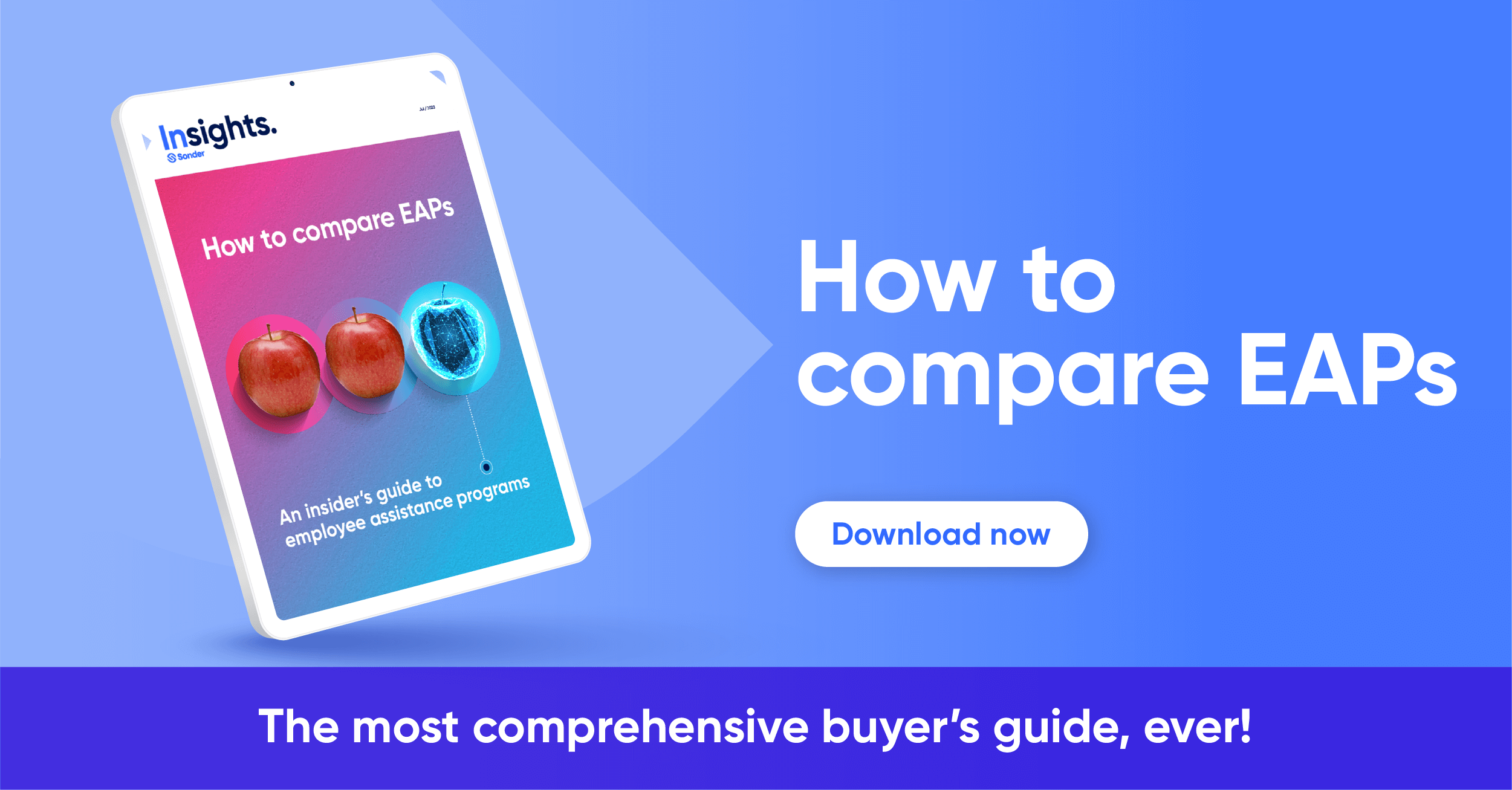
Want to learn more?
For more information about how Sonder can help you rethink your employee and/or student support, we invite you to contact us.
About Sonder
Sonder is a technology company that helps organisations improve the wellbeing of their people so they perform at their best. Our mobile app provides immediate, 24/7 support from a team of safety, medical, and mental health professionals – plus onsite help for time-sensitive scenarios. Accredited by the Australian Council on Healthcare Standards (ACHS), our platform gives leaders the insights they need to act on tomorrow’s wellbeing challenges today.



